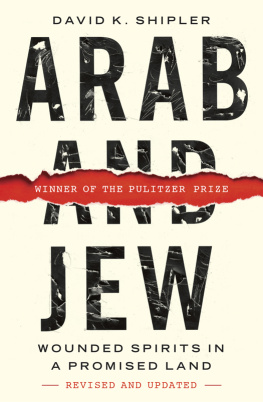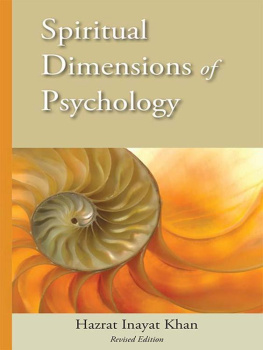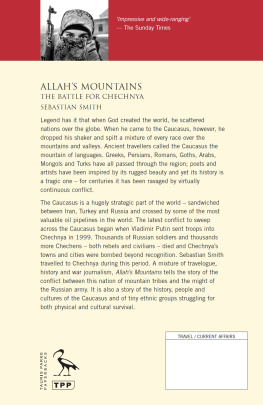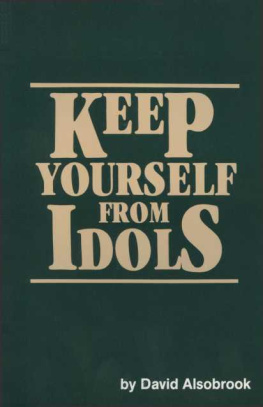Shipler - Russia: Broken Idols, Solemn Dreams; Revised Edition
Here you can read online Shipler - Russia: Broken Idols, Solemn Dreams; Revised Edition full text of the book (entire story) in english for free. Download pdf and epub, get meaning, cover and reviews about this ebook. City: New York, Soviet Union, Soviet Union, year: 1989, publisher: Crown/Archetype;Penguin Books, genre: Detective and thriller. Description of the work, (preface) as well as reviews are available. Best literature library LitArk.com created for fans of good reading and offers a wide selection of genres:
Romance novel
Science fiction
Adventure
Detective
Science
History
Home and family
Prose
Art
Politics
Computer
Non-fiction
Religion
Business
Children
Humor
Choose a favorite category and find really read worthwhile books. Enjoy immersion in the world of imagination, feel the emotions of the characters or learn something new for yourself, make an fascinating discovery.

- Book:Russia: Broken Idols, Solemn Dreams; Revised Edition
- Author:
- Publisher:Crown/Archetype;Penguin Books
- Genre:
- Year:1989
- City:New York, Soviet Union, Soviet Union
- Rating:3 / 5
- Favourites:Add to favourites
- Your mark:
- 60
- 1
- 2
- 3
- 4
- 5
Russia: Broken Idols, Solemn Dreams; Revised Edition: summary, description and annotation
We offer to read an annotation, description, summary or preface (depends on what the author of the book "Russia: Broken Idols, Solemn Dreams; Revised Edition" wrote himself). If you haven't found the necessary information about the book — write in the comments, we will try to find it.
Russia: Broken Idols, Solemn Dreams; Revised Edition — read online for free the complete book (whole text) full work
Below is the text of the book, divided by pages. System saving the place of the last page read, allows you to conveniently read the book "Russia: Broken Idols, Solemn Dreams; Revised Edition" online for free, without having to search again every time where you left off. Put a bookmark, and you can go to the page where you finished reading at any time.
Font size:
Interval:
Bookmark:
RUSSIA
David K. Shipler worked for The New York Times from 1966 to 1988, serving in Saigon from 1973 to 1975, Moscow from 1975 to 1979, and Jerusalem from 1979 to 1984. In 1982 he was a co-recipient of the George Polk Award for foreign reporting for his coverage of the war in Lebanon. He was a guest scholar at the Brookings Institution from 1984 to 1985, after which he joined the Washington bureau of the Times, where he served as chief diplomatic correspondent. In 1988 he became a senior associate at the Carnegie Endowment for International Peace. Russia won the Overseas Press Club Award, and Shiplers latest book, Arab and Jew, won the Pulitzer Prize for nonfiction in 1987. He and his wife, Deborah, have a daughter and two sons.


Copyright 1983, 1989 by David K. Shipler
All rights reserved.
Published in the United States by Crown, an imprint of the Crown Publishing Group, a division of Penguin Random House LLC, New York.
crownpublishing.com
CROWN and the Crown colophon are registered trademarks of Penguin Random House LLC.
Originally published in hardcover by Times Books, a division of Penguin Random House LLC, in 1983, and in an updated paperback edition by Times Books in 1989.
Library of Congress Cataloging-in-Publication Data
Shipler, David K., 1942
Russia: broken idols, solemn dreams / David K. ShiplerRev. and updated ed.
p. cm.
Previously published: New York: Times Books, 1989.
1. Soviet UnionDescription and travel1970 2. Soviet UnionSocial conditions1970 3. Soviet UnionCivilization1917 4. Shipler, David K., 1942 JourneysSoviet Union. I. Title.
DK29.S5241989b
947.084dc2089-36297
ISBN9780140122718
eBook ISBN9780451496492
First Revised eBook Edition
v4.1
a
For my mother,
Eleanor Karr Shipler
and my wife,
Debby
Soviet customs officials have confiscated many copies of this book since it was first published in 1983. Readers have written to tell me the gruesome details: the menacingly polite request, Do you have any books? May I see them? followed by a glance at the cover and a flip through the pages and the judgment that the book is anti-Soviet and may not be carried into the Soviet Union.
Occasionally, travelers have been told that the volume will be held and then returned when they leave the country. One mans copy was seized when he arrived in Moscow and was returned to him when he left from Leningrad; anothers was taken at Leningrad and given back upon his departure from Moscow.
Such reports grew less frequent after Mikhail S. Gorbachev became General Secretary of the Communist Partys Central Committee in March 1985. As he gradually opened the range of permissible debate and criticism, the Soviet borders became more permeable to ideas from the outside world. Therefore, I was curious to see what would happen when I took the book along on a visit to the Soviet Union in April 1988.
Do you have any books? May I see them? They were still checking, and thoroughly. As I pulled out books, magazines, and newspaper clippings, the customs officer behind the counter summoned two young plainclothesmen, smooth-faced English speakers. They looked through all the printed material with a chilling calm, spending more time with unfamiliar items than with my Russia; one of the men picked it up, read the title, flipped it open to make sure that the inside corresponded to the cover, and gave it back to me.
Indeed, everything was returned. Nothing was confiscated. And as I spent the next three weeks exploring the altered political landscape of the Soviet Union under Gorbachev, I kept thinking of this first encounter as a telling introduction to what I was finding there: The rules had been relaxed considerably, but the machinery of state control remained firmly in place, to be activated with ease if desired.
The Gorbachev era will enter history as a bold effort to revise some of the deepest political and cultural reflexes in Soviet society, an effort led by a man who displays only a dim understanding of the principles of free speech and democracy toward which he struggles to pull his country. Since the old political reflexes form the central theme of this book, which was written before Gorbachev, my task here is to revisit the attitudes I observed, to test my earlier conclusions, and to measure the force of the societys conservative instincts against the power of liberalization set loose by Gorbachev.
This I do in an epilogue, which becomes the final chapter of this new edition. The rest of the book remains substantially unchanged, since it focuses on durable features of Soviet society that have proven resistant to reform. They are characteristics that must be understood to grasp what Gorbachev confronts as he tries to drag the Soviet Union away from many of its own political traditions. The epilogue, therefore, is designed to add depth to the original by throwing those durable attributes into relief and by imparting a sense of motion to the portrayal of the Russians search.
I am grateful to The New York Times for agreeing to my requests for a three-week working trip to the Soviet Union. It was the fourth and longest of six visits within two years, allowing me to contribute to a series of articles, from which some of the material in the epilogue is drawn.
D.K.S. Washington January 1989
I set out for Moscow without thinking specifically of a book; it seemed sufficiently overwhelming to try to cover the Soviet Union for The New York Times. But as I worked there day to day, catching the most visible, transitory events for the headlines, I began to develop a strong feeling that, despite the broad opportunities for reporting provided in a newspaper like The Times, something was being left unsaid. Gradually this sense grew into a driving need to write in a more coherent and, hopefully, more durable manner on the themes of Soviet life, on the values that shaped the society as it entered the last quarter of the twentieth century. I wanted to look beneath the surface, past the leadership changes, dissidents trials, economic statistics, and diplomatic negotiations, to dimensions of attitude and culture where the task was not so much to answer questions as to ask them, to find the right points of curiosity and wonder, and to give them reasonable voice.
Those who helped me the most in this were Russians, not only those who became friends, but many more with whom I crossed paths fleetingly, and who took the risk of giving me a flash of insight before moving on. Because of the danger to them and their families, I must avoid naming any of them here, as much as I would like to give them thanks. Those who can be identified are mentioned in the course of the text; others, who need to be disguised, are either left anonymous or are introduced with fictitious names, which on first reference are placed in quotation marks. All other details are accurate; some I have blurred into vagueness, but none have been changed or mixed together to make composite characters, which is a device I oppose absolutely.
Living and working as a correspondent in a foreign country is an experience of total immersion, and so your family becomes crucial to your own interaction with the place. When there is also hardship, their solidity and good cheer are essential to well-being. My wife, Debby, and our children, Jonathan, Laura, and Michael, all deserve enormous gratitude. Looking through my childrens eyes, I saw much of what I never would have seen alone. And Debbys perceptions as a skilled teacher were essential to the first two chapters, on education, for she visited schools and kindergartens with me and helped analyze much of what we saw. She made valuable suggestions on the manuscript.
Font size:
Interval:
Bookmark:
Similar books «Russia: Broken Idols, Solemn Dreams; Revised Edition»
Look at similar books to Russia: Broken Idols, Solemn Dreams; Revised Edition. We have selected literature similar in name and meaning in the hope of providing readers with more options to find new, interesting, not yet read works.
Discussion, reviews of the book Russia: Broken Idols, Solemn Dreams; Revised Edition and just readers' own opinions. Leave your comments, write what you think about the work, its meaning or the main characters. Specify what exactly you liked and what you didn't like, and why you think so.




![Nietzsche - Twilight of the Idols [N.F. - Philosophy]](/uploads/posts/book/249935/thumbs/nietzsche-twilight-of-the-idols-n-f.jpg)




